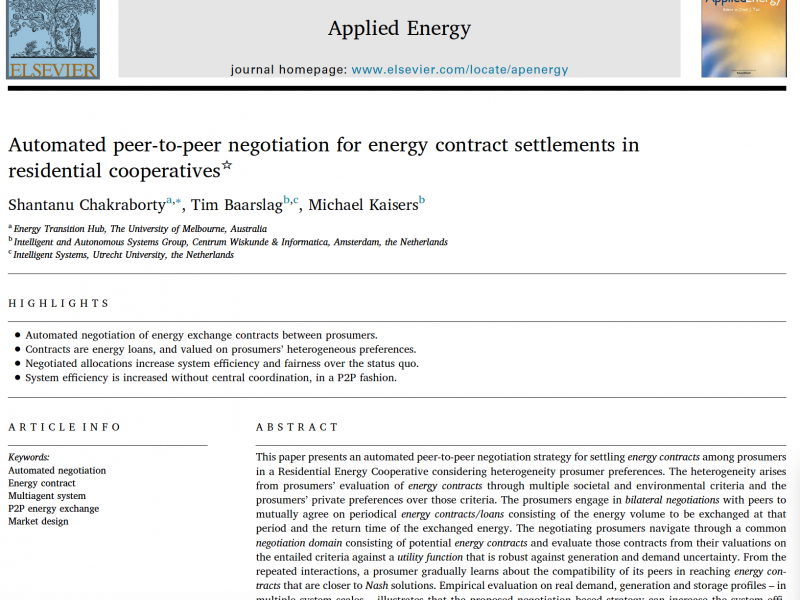Automated peer-to-peer negotiation for energy contract settlements in residential cooperatives
Small-scale (residential) prosumers are constrained from actively participating in wholesale electricity markets. Instead, prosumers are typically served by residential aggregators and retailers. This leads to inefficiencies as the prosumers are not incentivised take into account the overall demand and supply status when managing their own energy use.
Coordinating prosumers’ distributed energy resources (DER) could re-shape overall demand and offer significant value to the energy system. It could alleviate the need for investment in additional generation and transmission infrastructure and minimise the fluctuations due to renewable power integration. However, properly incentivising prosumers to coordinate their generation capacity challenging.
One avenue is to apply distributed optimisation techniques that facilitate the coordination of the DER. However, these techniques are not readily applicable when DERs have different owners; at least not without considering the strategic interaction between owners.
This paper proposes a novel and intuitive automated negotiation based strategy to settle energy contracts - a tuple of energy volume as loan and the return time - that considers heterogeneity in sustainability-conscious prosumers through a distributed and autonomous agent model. The strategy enables the prosumers/agents to gradually learn about negotiating peers and eventually to make informed peer selection that increases the overall success rate in contract settlements.
The paper evaluates the performance of the proposed negotiation based strategy over real residential demand, generation, and storage data to determine if the negotiated outcomes increase social welfare and to assess the impact on networks and system strength. It concludes that the automated negotiation strategy has benefits - it can reduce the potential inefficiencies due to integration of distributed intermittent resources and accommodate heterogenous preferences of prosumers, without stressing the network.



